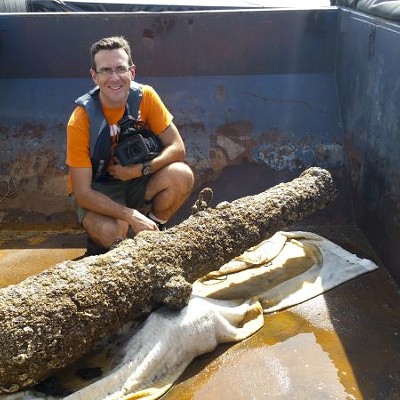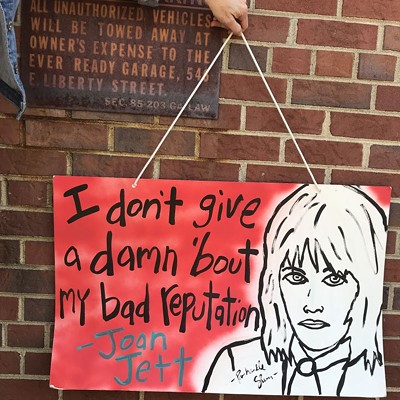Want clean air, fresh water and healthy wildlife?
Get over yourself, hippie.
What we need is jobs around here, and we need them fast. We need to remove the barriers to commerce in this state, the environment be damned. Who cares if a couple of rivers die or some poor people get cancer? What’s a few million fish, people, when there’s revenue to be generated?
*cough*hack*sputter* Wait a minute. Sorry about that, I must have been temporarily brainwashed by the Kool–Aid flowing downstream from Atlanta, where state legislators have passed a new law that makes it easier for corporations to pollute just about everything.
Sponsored by Senator Ross Tolleson (R–Perry), General Assembly Senate Bill 427 calls for the expedition for all permits issued by the Georgia Environmental Protection Division “so as to change certain provisions relating to processing.”
Basically, the General Assembly wants the EPD to approve permits faster so businesses can open up shop and get to work. Sounds reasonable — intelligent, even. Until you remember that after gouging budget cuts, there are barely enough field investigators left at the EPD to fill a basketball team. Those poor folks can’t even stop King America Finishing from illegally spewing fire retardant into the Ogeechee River (shocker: strongly–worded emails and finger wagging ain’t doing the trick).
Clearly, providing the brainpower to investigate more permit requests faster is beyond the agency’s scope in its anorexic condition. (I tried to get a statement from the EPD on SB427; either they’re too swamped to return phone calls or just too embarrassed.)
So how does Sen. Tolleson’s law propose to accomplish the task of expedited environmental permits?
Easy. You can pay for them!
Companies with the cash can fast–track their permits by hiring “outside reviewers”—private consulting firms that would grant approval based on state guidelines.
Did you just throw up a little? Me, too. While this doesn’t automatically mean that companies will hire someone friendly to their cause to sign off on a potentially hazardous venture, it certainly flings the door wide open.
Oh, and if you’re a small manufacturing start–up on a budget hoping to do business in Georgia, your permit goes to the back of the line, bub.
The whole thing seems like another Emperor Wears No Clothes moment in Georgia’s approach to protecting the environment. Sen. Tolleson’s hilarious notion that “everybody kind of wins in this” certainly is true—if “everybody” does not include you, me, birds, fish, wild mammals and anyone else not a CEO of a major corporation.
The measure goes into effect July 1. The EPD has no choice but to figure out how to make it work and come up with some kind of contract that requires consultants to abide by the law. (The Air Branch is currently gathering input at a series of stakeholder meetings; the next one is in Dec. 11.) The EPD is also supposed to have the final say on the approvals.
But who actually believes this will make companies more accountable? Remember a few paragraphs ago, where KAF is still going “nannynannybooboo” as it dumps its toxic filth with little consequence?
Here’s a crazy idea: Instead of legislation that enables commerce without oversight, how about actually funding the department whose whole existence is to enforce laws already in place? EPD director Judson Turner and the rest of his staff have been charged with protecting the state’s air and water — the right action for the General Assembly would have been to give them the resources to do their jobs, not tangle them up even further.
By the way, Sen. Tolleson is chair of the state’s environmental committee. With a friend like that, Georgia’s last remaining wild places don’t need enemies.
Of course, he’s just following the lead of Gov. Nathan Deal, who might pave paradise and put up ten thousand parking lots if it made a profit. By hook or by crook, the governor says he will dredge the river outside our doors to dangerous levels, even as the legality of the Savannah Harbor Expansion Project (SHEP) continues to confound a federal court.
(The Southern Environmental Law Center is representing the Savannah Riverkeeper in its quest to uphold the denial of a South Carolina water permit on the basis that SHEP will stir up toxic levels of cadmium and dump them on the SC side of the river.)
SHEP sycophants like to point out that the U.S. Corps of Engineers has allocated almost half the project’s estimated budget to “environmental mitigation,” including “moving” several hundred acres of the Savannah Wildlife Refuge (make sure those snowy egrets get the memo!) and building a freshwater reservoir for the City of Savannah in anticipation of the saltwater that will creep upriver into our drinking supply.
I think those people may have misunderstood what “mitigate” means: It means to lessen the rather unacceptable effects of an irrevocably salinated water source and several hundred acres of dead marsh (that remove a vital buffer zone should a superstorm head this way.) Though it may buy a lot of advertising, $292 million will not actually fix these likely outcomes of SHEP.
But nevermind the unanswered questions about SHEP’s environmental impacts — or that deepening the river 38 miles to its absolute limit of 47 feet still won’t make it competitive against the 50–foot, closer–to–ocean ports in Jacksonville and Charleston. Gov. Deal was all about pushing aside logic at the Georgia Ports Authority board meeting on Nov. 19, insisting that making the river deeper for mammoth supertankers “plays an integral role in helping make our state the number one place in the nation in which to do business.”
But as the fiscal cliff approaches, federal dollars promised to SHEP might not even be coming: Gov. Deal announced at the same meeting that he’ll put the burden of $50 more million on Georgia taxpayers to up the ante on the $650 million project.
However, while the state of Georgia keeps dismissing environmental concerns like Marie Antoinette tossing cake out the window, the feds have realized that green is the way to go:
U.S. Energy Secretary Stephen Chu revealed last week that $770 million has been granted to develop sustainable technologies and innovative energy strategies as part of the Advanced Projects Research Agency.
Approved projects include supercapicitators that store energy ten times more efficiently than a battery and the development of low–cost wires to replace outdated electrical grids. All in all, 66 companies and universities received funding for projects that solve problems — not create more. (In spite of the anti–environmental climate around here, Georgia Tech managed to net almost $13 million for three projects.)
Here’s the hard truth, Sen. Tolleson, Gov. Deal and all your cronies: The environment is actually where the money’s going to get made, starting now.
And if Georgia doesn’t have one worth a damn, it’s going to lose.



























